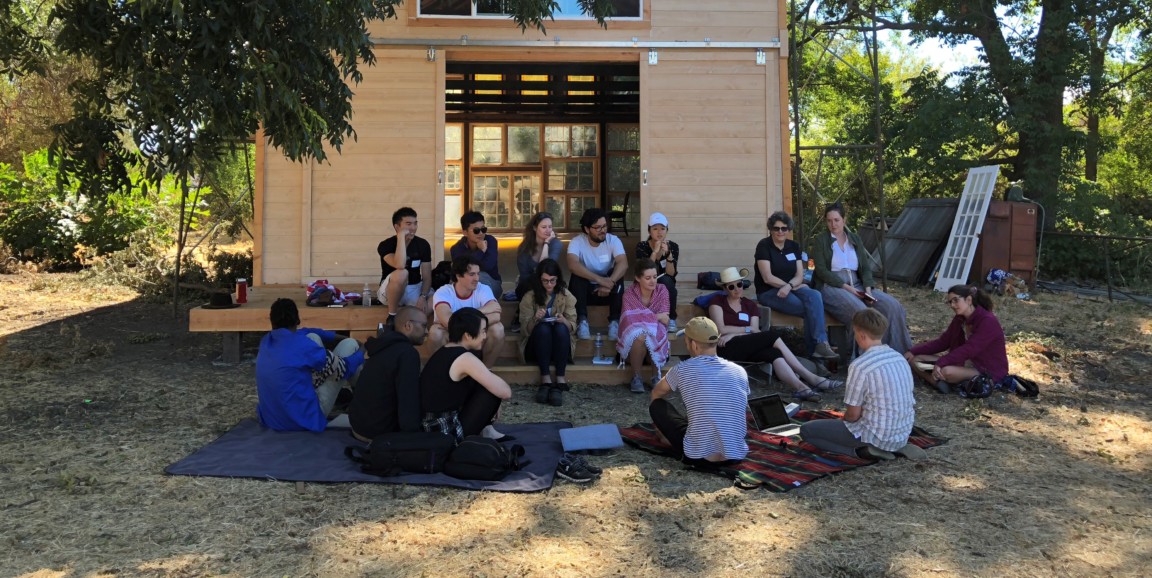Before coming to medical school, I made a promise to myself: I will not become a Robot Doctor. Time and again, I visited what I call Robot Doctors - those physicians unable to empathize with me and seemingly unable to compute moments when I said something unscripted. For example, I once made an appointment with a doctor to discuss what might have been irritable bowel syndrome (IBS). While describing my symptoms and discomfort, I cried. The doctor stared at me, blankly, and offered, "I can also refer you to a psychologist. You know, to talk about your feelings." I wondered, are human emotions so foreign to this doctor that my feelings need a specialist?
I also thought perhaps the doctor was off his game. He was sleep-deprived. He had a rough morning. Nevertheless, whatever excuses I mustered didn't erase the hurt I felt. While I sat with that doctor, I felt alone; it was awkward and unnatural. I vowed never to become that type of clinician.
Flash forward four years and I'm two months into Stanford's medical curriculum. Already I can imagine how that Robot Doctor had emerged, as I'm beginning to feel like Robot Student. Each day is summarized in a checklist I attempt to complete before the following day. The next day starts and ends the same way: cross-checking my list, triaging what to table and what to complete before I sleep and start again. Some days I drag myself from class to class. Lectures and lunch seminars send thought bubbles into the air, whizzing in circles around my head. My calendar consumes me.
Part of the problem is that in medical school, there are things I must do to change myself. There are standards that I must uphold and practices to which I must conform. How do I conform to rules and regulations but maintain a semblance of my sympathy, unlike the physician from my IBS appointment that day?
I don't have the perfect answer to this question, but I can think of something that can help: practicing compassion. Specifically, I must face my emotions, own my mistakes, and forgive myself. This is easier said than done, as it requires that I carve out time to reflect and engage with my own thoughts. What I have discovered, partly through the tips of second-year students, is that Stanford has amazing spaces and options for students to explore wellness and self-compassion. It's only a matter of prioritizing those opportunities.
In early October, I was lucky enough to have an opportunity to practice self-compassion through the Medicine & the Muse Storytelling Retreat, joining many other medical students spanning both pre-clerkship and clerkship years. We spent a weekend writing on a variety of topics and shared our pieces with each other (something I was at first hesitant to do). For the first time since the start of school, I had ample time to face my fear of becoming a Robot Doctor.
At the retreat we were given many prompts to inspire our reflections, and among my favorite exercises was writing my own eulogy from the perspective of my younger sister, Maddie. Though morbid, this piece helped me enter the space I needed in order to deal with my emotions. I had to answer questions I have struggled with all of my life and ask: What life would I lead that would make Maddie proud? What choices did I make? What values did I uphold? Would she say I found joy in the little things and laughed until my sides hurt?
I was inspired by the retreat. Our facilitators shared their own struggles with creativity in their professions. My peers shared their writing, showing courage and a bit of their inner selves. Students read pieces about times they failed miserably, times they were hurt, and time they will never get back again. They cried, they felt something, and they were anything but robotic.
As I sat there among all of these blessedly wonderful people, I felt their compassion and humility. They were, like me, struggling against the emotional drains of medicine, and yet they managed to elude the pressures that can harden us into becoming Robot Doctors. Years above me in training, these medical professionals still took time to work toward being both compassionate humans and skilled clinicians. Their effort, persistence, and courage gave me hope that I can face the demands of medical training and keep the promise I made long ago.
Stanford Medicine Unplugged is a forum for students to chronicle their experiences in medical school. The student-penned entries appear on Scope once a week during the academic year; the entire blog series can be found in the Stanford Medicine Unplugged category.
Lauren Joseph, LoJo, is a first-year medical student from Arcadia, California. She graduated from Stanford in 2017 and spent one year working in San Francisco before starting medical school. She is thrilled to be back at Stanford. She loves cooking, reading, running, and laughing with friends and family.
Photo from the Medicine & the Muse Storytelling Retreat courtesy of Laurel Braitman




